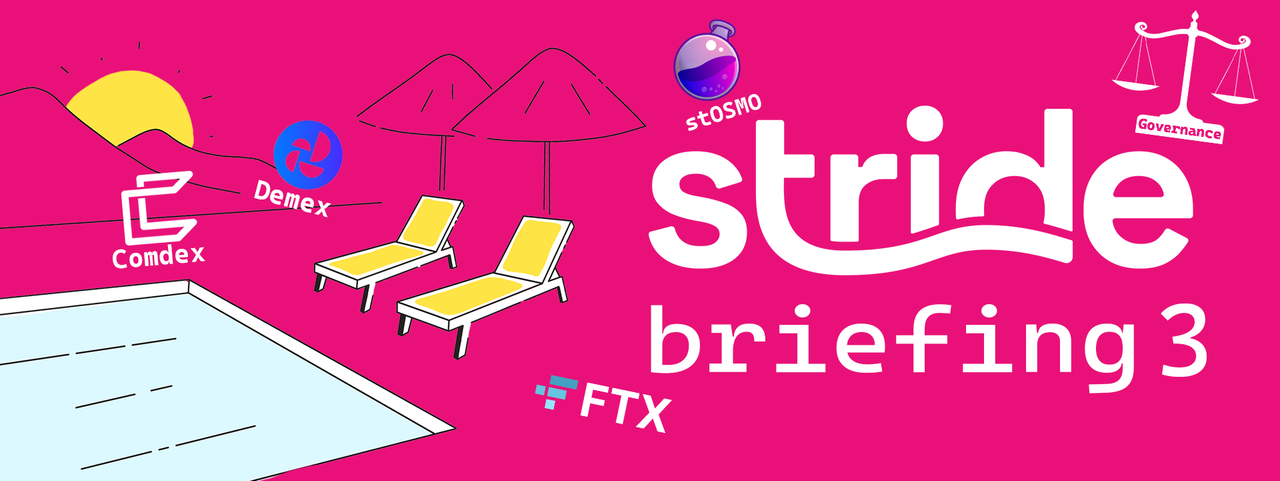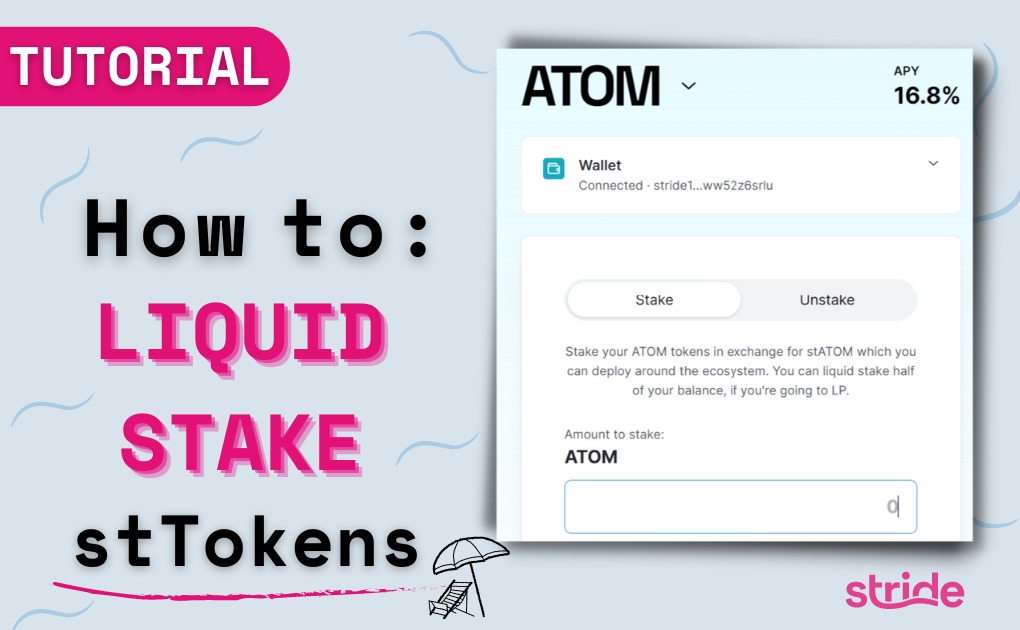Stride Lab
Stride Labs, sustainability & liquid staking
The 72nd episode of the Citizen Cosmos podcast was dedicated to the Stride Labs project that provides liquidity for staked assets. Serj talked to the co-founder of the project, Riley Edmund, about ledger compatibility, the process of choosing a validator, DeFi economics, Riley’s path toward blockchain, and much more. Find out the recap of the discussion below.
Stride Labs and ledger compatibility
Riley described his project and goals. He pointed out that Stride Labs is a product app blockchain in the Cosmos ecosystem that allows liquid stake tokens across any IBC-compatible chain. It aims to disrupt the cycle of social and technological inequality and support the non-profit business objectives by providing affordable services for effective technology leveraging. One of the main things introduced as a part of this goal-achieving process is ledger compatibility. It is an ambitious plan to make the ledger compatible with multiple networks and wallets. It already supports Osmosis and Cosmos is already on its way. This will allow us to go to the pool on Osmosis, trade into Atom, and start gaining rewards. That’s the beauty of liquid staking, according to Riley.
How to choose a validator the right way?
Another lively topic discussed was the validation process and how to choose a validator. Riley mentioned the Nakamoto coefficient, which states that a certain number of validators will control one-third of the stake. Stride aims to increase this coefficient. When choosing the validator, the Stride team follows a simple method of governance: they’ve listed the validators already in Cosmos and allowed the Stride token holders to vote to increase the weight of their preferred validator. The team plans to create voting vaults for particular ecosystems to avoid Stride being held by only a few whales that would keep voting on a specific validator to increase their weight in the liquid staking. This way, the Cosmos community would vote for the Atom validator set, the Juno community on the Juno set, and so on. This attitude to choosing a validator is especially important for smaller underrepresented communities.
DeFi and economic sustainability
Regarding how DeFi economics is progressing, Riley emphasizes the role of IBC in terms of tokenomics and how DeFi products entered the market. He also mentioned that there had been a ton of inflationary reward-based DeFi apps in the past. Now, it is moving toward sustainable business models where actual yield and revenue are acknowledged and rewarded. There’s also been a shift towards distributed app-specific chains that have control over the full layer of the stack, and tokenomics are starting to shift toward sustainable business models similar to web2. Finally, according to Riley, we’re moving away from trusted intermediaries to trustless and sustainable DeFi.
Inspiration & challenges
Usually, we ask our guests about their way toward crypto and blockchain. This time was no exception. Riley shared his blockchain story and the difficulties he and his team faced when launching Stride. He said his main inspiration to start building was his experience in Bridgewater. He observed how the centralized financial system operates and compared it with the benefits of the decentralized one. Not being able to change the state of affairs completely, he nonetheless saw the opportunities to make minor impacts that would affect the future using DeFi. One of the main unexpectedness faced by Riley and his team was that Stride was initially conceived as a side project, yet turned out to be one of the influential blockchain projects. Because of that, they were urged to hire more developers and engineers but didn’t have time. Today, Stride has only four engineers, while the desired amount is at least eight, so there’s still a way to go.
Wrapping up
Apart from the topics mentioned above, Riley shared his insights and gave excellent advice to blockchain newbies regarding research. Moreover, he shared his motivation, a crucial part of every Citizen Cosmos podcast. Riley is passionate about exploring, and so are we, and we hope we were able to encourage you to keep exploring the ecosystem with us!
If you would like to support our mission in creating educational content and aligning the goals of different communities, please stake with us here)
Join our community, to build a future where communication is decentralized. May the code be with you!

